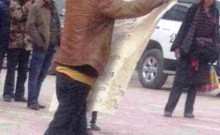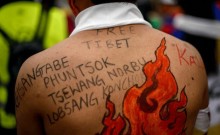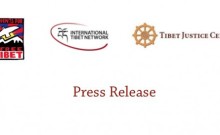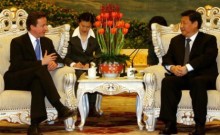New UN Rights Boss in talks with China on Tibet visit
Thursday 16 October 2014
The new United Nations human rights chief said on Thursday at his first media briefing in the job that he wanted to visit Tibet and was talking to Chinese authorities about a trip there.
More than 120 Tibetans, including many monks, have set themselves on fire since 2009 to protest against Beijing’s rule, which activists say tramples on religious freedom and culture.
China “peacefully liberated” Tibet in 1950 and rejects such criticism, saying it has ended serfdom and brought development to a backward, poverty-stricken region.
Asked whether he might also visit other Chinese regions such as the Uighur region of Xinjiang, Zeid Ra’ad al Hussein told reporters: “Perhaps it is premature to discuss exactly where I would visit.
“But in the initial dialogue, we spoke of a multi-day visit, so I suspect that I would move around if indeed we are able to get the visit in place soon.”
Hundreds have been killed in Xinjiang in the past two years in clashes between Muslim Uighurs and majority Han Chinese.
A visit by the U.N. rights chief was agreed in principle by Chinawhen it underwent a review last year at the U.N. Human Rights Council, which regularly examines the records of all U.N. member states.
In 1998, Mary Robinson became the only U.N. rights chief to visit China, including Tibet, despite repeated requests by her successors. Robinson was a critic of China’s practice of sending people to labour camps without trial or due process.
Navi Pillay, whose term ended on Aug. 31, urged China to allow independent human rights monitors to visit Tibet and address deep-rooted frustrations.
“China in its Universal Periodic Review (UPR) agreed to the recommendation that there be a visit by the High Commissioner to Tibet. So we are discussing this issue with the Chinese authorities,” Zeid, Jordan’s former U.N. ambassador, said.
In answer to a question about Hong Kong street protests, Zeid noted that as a former police officer in Jordan trained in riot control, good judgment and discipline must be exercised in frightening situations that can become explosive.
Two weeks of sometimes violent pro-democracy protests in Hong Kong have paralysed parts of the city.
Hong Kong leader Leung Chun-ying sought to defuse tension with protesters on Thursday, saying he hopes the two sides can talk next week, but anger over police violence and persistent street scuffles suggest the students are not about to give up.
“Clearly the party exercising sort of control or at least the sovereign party has to be extra vigilant and has to be very disciplined not to ensure any excessive use of force which would be highly detrimental and could feed the crisis.
“The main thing is that people should be (able) to express their opinions, their views in a peaceful manner and we would not be happy of course if excessive force were used against them, in any context really,” he said.
Zeid took up the job in Geneva six weeks ago.




